Advanced: Account Participants
Account Participants are the individual factors that are assigned INTU Keyshares. They can be understood in three general categories:
- End-User Factors
- Application Factors
- Recovery
Each category has unique authentication methods tailored to their purpose.
All of these account participants interact with the INTU protocol and SDK through signed messages and transactions. The INTU SDK provides tooling to bridge non-blockchain native authentication methods to the on-chain protocol, effectively a non-interactive microwallet which signs on behalf of authentication services using pre-defined authorizations. This tooling requires no additional configuration from developers, or interactions from end-users.

End-user Factors

End-users can interact with the INTU protocol in many ways, largely dependent on the application and expectations of the end-user. This includes:
-
Directly using an EVM compatible wallet, such as Metamask
-
Cloud-based Authentication services for SSO, passkeys, or e-mail/sms authorization. This enables users to connect on-chain safely using familiar credentials such as Google, Apple, Meta, X, or Discord.
-
JWTs to support custom or enterprise-grade user authentication
-
Custom or In-app wallets in existing applications
Regardless of user authentication and authorization method, the user-facing factors interact with the INTU SDK via signed message or transaction. This includes all interactions: account generation, signature formation, and account management.
As a result, developers can choose the best suited authentication method for their end user to provide a familiar, efficient, and safe experience:
-
“Invisible” Web3 for mainstream users, including 1-click connect without gas
-
Existing blockchain users with wallets or other clients able to produce signatures, adding the benefits on an INTU account to EVM accounts already in use
-
Enterprise-grade authentication to meet CISO expectations using existing solutions through JWT compatibility
-
Fully integrated in-app experiences with minimal cost and time of integration, such as game-specific wallets
-
SMS, E-mail, or Username/Password systems already in use
Application Factors

In addition to end-users, INTU accounts can be utilized programmatically, using the INTU Co-signer Module.
By default, the co-signer module performs basic functionalities that allow INTU accounts to be used without requiring multiple interactions from end users. They are included in the account generation process, and receive a unique keyshare for participating in the signature formation process. The co-signer can:
-
Listen for, and participate in the creation of new accounts, when defined by the developer or user
-
Listen for, and participate in the formation of valid signatures for accounts they are members of
-
Subsidize gas fees, and serve as a relayer or bridge to RPCs/Gateways for various blockchains on behalf of the end-user, if their end-user factor does not support directly broadcasting transactions.
Co-Signers can also be configured for more advanced functionality, which is discussed on the dedicated page Co-Signers. By supporting micro-applications, developers can include advanced functionality at the account level, including programming on-chain behaviors, whitelisting networks and tokens, kyc/aml, and AI-generated instructions.
Recovery Factors
Any device or application that has the ability to sign can also be used as a factor to participate in an INTU account. Outside of User-facing factors and Co-signers, these largely consist of specialized hardware or services for enhanced security or account recovery. Some examples may include:
-
Crypto hardware wallets, such as a Ledger Nano
-
Hardware Security Modules (HSM) and HSM-services
-
Crypto custodial services such as DFNS or Fireblocks
-
Offline cold storage, including paper wallets
Unsure if a factor is compatible with INTU accounts? Get in touch here.